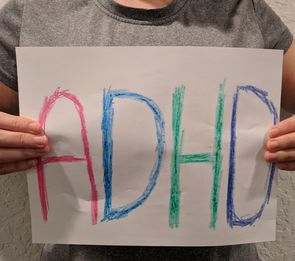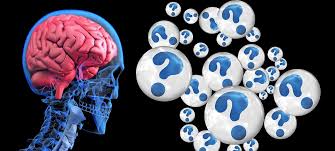 Attention-Deficit Hyperactivity Disorder (ADHD) is a condition that occurs in both children and adults. The Diagnostic and Statistical Manual of Mental Disorders 5th edition (DSM-V) defines ADHD by a collection of a certain number of symptoms. There are the inattentive symptoms (the attention deficit) and the hyperactivity/impulsivity symptoms (hyperactivity). Some of the more common complaints I hear from parents are that their child does not pay attention, does not seem to listen, is fidgety or is not performing well academically. But it is the consensus of the scientific community that true ADHD is a brain-based disorder. The vast majority of medical doctors, including psychiatrists, do not look at the underlying brain physiology when diagnosing ADHD and then prescribing medicine. To put that in perspective, imagine you had chest pain. Causes of chest pain are numerous. A short list includes myocardial infarction, coronary artery disease, myocarditis, pericarditis, pulmonary embolism, pneumothorax (collapsed lung), pleurisy, pneumonia, lung abscess, pulmonary hypertension, GERD (acid reflux), peptic ulcers, gallbladder problems, rib subluxation, shingles...and the list goes on. Imagine going to the medical doctor and having them tell you that they were not going to run any tests to figure out what was causing your chest pain. Instead, they were going to prescribe some medicine and see what happens. It seems ridiculous to even make up such a scenario, yet it is the standard of care with ADHD.  Using quantitative electroencephalography (qEEG) I can "look under the hood" with my patients and see what their brain is doing. The fascinating thing is that when that is done there is not one type of brain people with ADHD have. There are actually at least 6 different variants of brain activity that can result in the same symptom! And each variant responds differently to both Neurofeedback interventions and medications. Thus, ADHD is actually not one disorder. It is at least 6 different brain disorders presenting with the same symptom. Remember the chest pain example above? It is not just me saying this. Published studies have been done on these different sub-types of ADHD and how they respond differently to medications, such as atomoxetine. Daniel Amen, a psychiatrist who is known for doing SPECT scans of people's brains, concurs that there are different types of ADHD brains that present with the same symptoms. He is now recommending Neurofeedback as a treatment for ADHD and other disorders. Patients who come to see me for ADHD will get a qEEG evaluation done to assess brain function. They will also get computerized testing done to confirm that they actually have ADHD and help determine that they do not, in fact, have another disorder that has some of the same symptoms as ADHD. Sometimes, when I run the tests for ADHD, I discover that the person who was being prescribed medication for ADHD does not even have this disorder. People can have other problems that mimic ADHD including Autism Spectrum Disorders, sensory integration problems (often but not always related to autism), auditory and/or visual processing disorders, developmental trauma or Oppositional Defiant Disorder. I also utilize a program called Brain Dx which is a qEEG normative database developed over decades of peer-reviewed, published research at New York University. Brain Dx has a discriminant function that tells the doctor the likelihood that a brain is one of a person having ADHD. Discriminant functions in neuroimaging are not stand alone instruments for diagnosis. However, in conjunction with other testing and assessment measures, they can offer valuable insight into the organic basis of psychological problems. There are also discriminants for things like major depression, bipolar disorder, schizophrenia, dementia, autism and traumatic brain injury. I use whichever ones are appropriate when working with patients. I have had excellent success treating ADHD. While working at the Psychological Sciences Institute, I worked with a neuropsychologist and we presented our research on ADHD at the International Pharmaco-EEG conference in New York City. In our sample of 41 people, 100% of subjects had improvement in their attention and impulsivity scores using the IVA+ continuous performance test (objective computerized test) after Neurofeedback treatment. YES, 100%. Here is a link to the poster we presented. ipeg_poster_2012_final-1.pdf. Publication of this material is in development. At the end of this blog is a list of over 100 more studies on Neurofeedback and ADHD. There are a handful of studies on chiropractic and ADHD. Most are case studies and present very limited objective evidence. However, in certain cases I have seen chiropractic be an effective intervention. I am able to provide chiropractic as a stand-alone trial intervention or in conjunction with other therapies should a patient request such. My goal is to help people get better as soon as they can. Another co-factor of ADHD can be metabolic dysfunction. This can often relate to things like gut dysbiosis with associated food sensitivities. Poor diet will facilitate such a condition and perpetuate it. Other more complex metabolic processes and neuro-inflammation can be at play and I can test for these at my office. If you or a loved one struggles with ADHD, or you think they might have ADHD, please contact me to set up a consult and evaluation. It would be an honor to help you. Here is a list of over 100 studies on Neurofeedback and ADHD, cognition and learning disorders: Click here: Over 100 ADHD studies
3 Comments
LUCIANA
4/29/2018 04:16:42 pm
I would love more information. I have an 11 year old son who has ADHD. I am also an elementary school teacher and I see kids coming with a lot more challenges as the years past. Do you take insurance?
Reply
Flo
4/29/2018 04:40:09 pm
I would like more information. My granddaughter has been diagnosed with ADHD and is also being treated for Absent Seizures. She is very sensitive and is having a very hard time in school. Do you have a facility in Florida? I have custody of her and she is on Staywell. Will they cover the tests you are suggesting? She is scheduled for a 48 hour EEG for her seizures next weekend. What questions should I be asking her Neurologist after the results come in?
Reply
Leave a Reply. |
AuthorI'm a Chiropractic Physician, Psychotherapist and researcher. I'm interested in helping people live their lives to their full potential. That could be simply without pain. Or it could be without more complicated physical or mental health problems. Or it could be getting help in making changes in their life so that they can achieve their dreams. Archives
June 2023
Categories |
 RSS Feed
RSS Feed